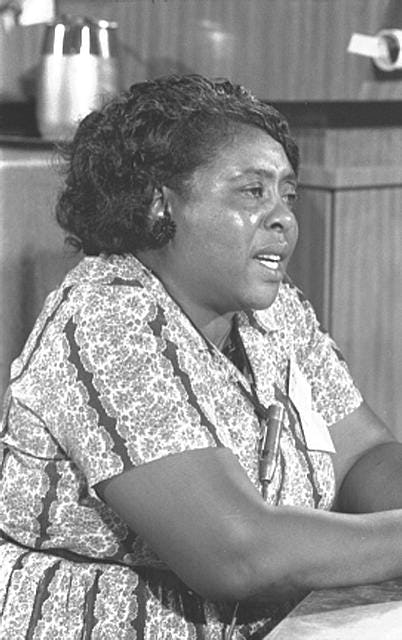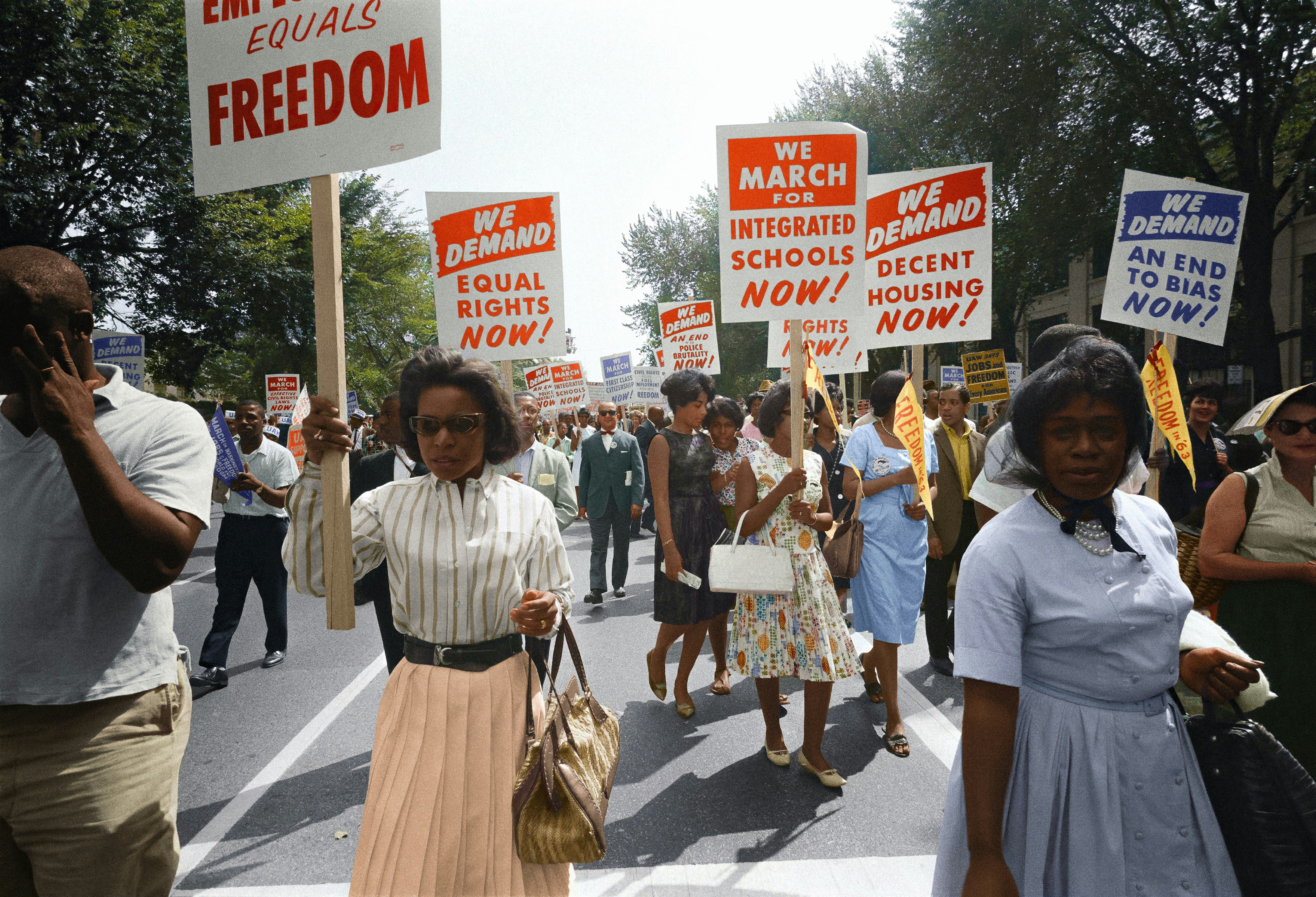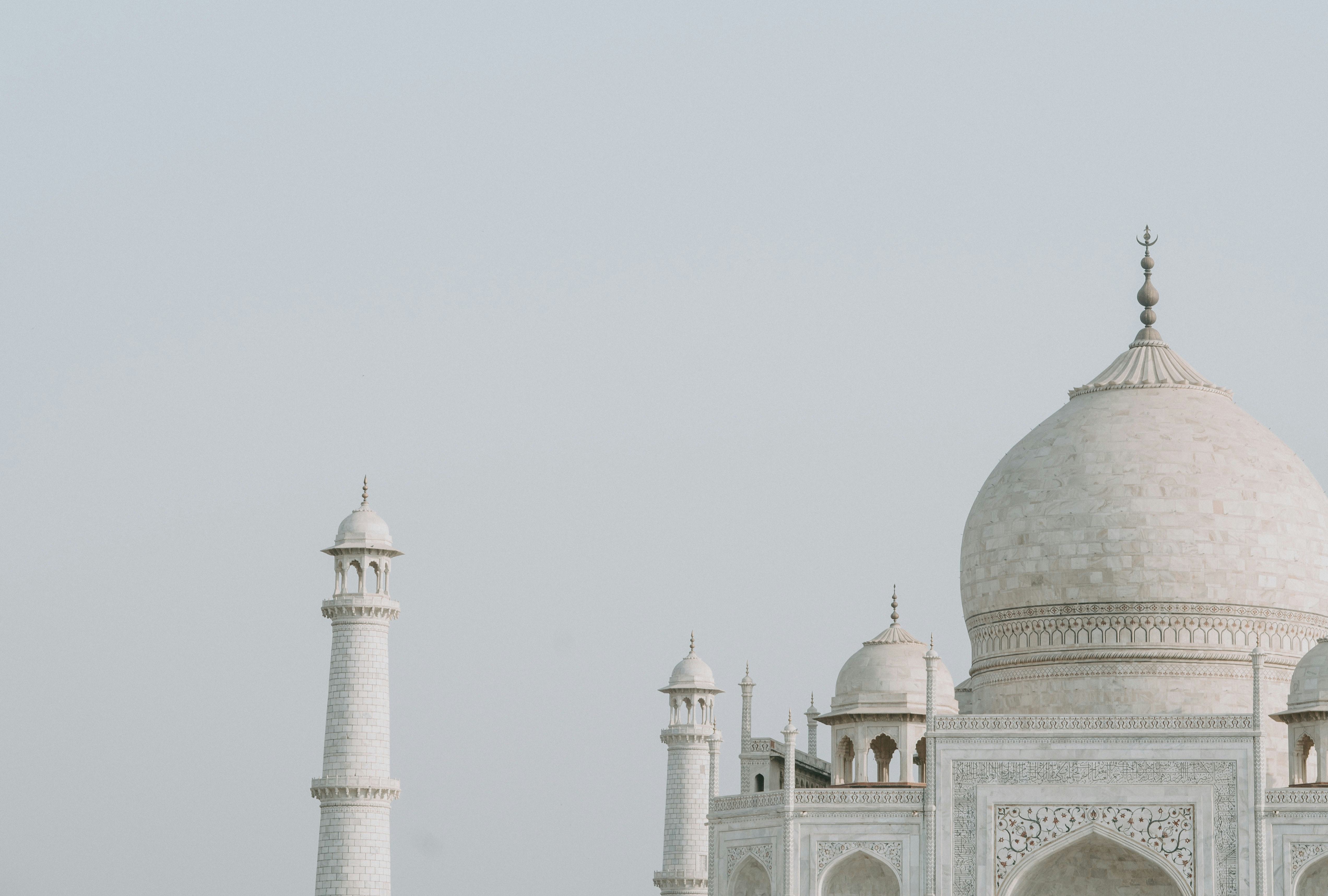I am a Black person. I have often felt, throughout my life, that activism was a “given,” meaning that it was something I was expected to do. This weighed heavily on my mind in college, as I organized and worked as an activist in the Black Student Union.
Physical activism was a regular part of my life. I marched, attended protests and rallies, and even recorded some. I organized events to educate the community. In that period of my life, save avenues for activism were more accessible to me, being on a college campus, but that did not mean I was free from danger. There were several very close calls, which could have changed my future drastically.
My story isn't unique, nor is my fear of the risks embedded in physical activism for Black people. Within the complex history of the United States, Black activism has been a pivotal part of change and progression. Whether we look at Black abolitionists, leaders of the Civil Rights Movement, or even today’s contemporary racial justice activists in the Black Lives Matter movement, it is clear that Black activism has sustained Black communities and fueled the ongoing struggle for justice with relentless clarity, passion, and commitment. Many marginalized groups throughout history of America, such as the LGBT+, Latinx, Native American, Asian American communities, have been inspired by political tactics of the Black Civil Rights movement to organize similar movements for voting rights, civil rights, and human rights. Black Activism has been central to America as we know it and continues to work for vital change today.
Yet this work is not straightforward. It poses unparalleled risk to Black people specifically. While Black activism has made strides in our rights, it is a constant uphill battle. As amazing as activism is, activism is still required because injustice persists. Black activism can be exploited as a political device, without considering the burden it places on Black people's collective and individual physical and mental health. Black people have been fighting injustice for hundreds of years, from the brutality of slavery to the brutality of Jim Crow to the present brutality of systemic racism.
Black movements have lost an unparalleled number of leaders to violence and assassination. Rev. Dr. Martin Luther King, Jr. and Malcom X were both assassinated for their views and work. Fred Hampton, Herbert Lee, Marsha P. Johnson, Jimmie Lee Jackson, Oneal Moore, and many more lesser known Black activists shared the same morbid fate.
Those who did survive encountered extreme violence in response to their activism. Fannie Lou Hamer, a powerful voice for voting rights and racial justice in Mississippi during the 1960s and 70s, was fired from her job, nearly arrested, and forced to relocate when she first attempted to register to vote. While this one experience contributed to her lifelong devotion to civil rights later on, it wasn’t without its hardships. Hamer was a victim of violence directly tied to her activism. On June 9th, 1963, returning from a citizenship training program in Charleston, South Caroline, Hamer was arrested with other activists when their bus was stopped in Winona, Mississippi. Some of the group sat at the all-White lunch counter in the bus station to protest, and they were arrested. In prison, Hamer endured beatings so violent, they resulted in permanent damage to her kidneys, legs and eyes.

Fannie Lou Hamer, Mississippi Freedom Democratic Party delegate, at the Democratic National Convention, August 1964
Even within the past ten years, Black activists have been victims of assassinations and attempted assasinations both here in America and abroad. Sasha Johnson, a Black Lives Matter activist in the UK survived an assassination attempt in 2021. Marielle Franco, a Black Brazilian human rights activist, was assassinated in 2018. We also cannot forget about the tragic death of Oluwatoyin Salau by members of her own community, in addition to deaths which followed the marches in Ferguson.
As a Black person myself, navigating my identity and my role as an activist has always been an issue; it feels like a very real obligation and something I want to do, yet at the same time I cannot ignore the impact it has on my mental health and could potentially have on my life. I feel guilty for caring for myself before others. But as someone who suffers from anxiety and depression, confronting the manifold, longstanding injustices my people face in risky contexts has become increasingly difficult for me.
On one hand, activism is important to my community and other marginalized communities. But on the other, activism bears consequences for Black people not shared by other groups. Consequences can range from longer jail sentences if arrested during a protest to being murdered or attacked while protesting.
Given the connections of Blackness and activism, many Black activists, protestors, and participants in general are stuck between a rock and a hard place. The life of a Black activist is not an easy one, and many Black activists are not protected the way they should be. This is why, for Black people, the line between contemplation and action is a very real one that many others do not understand. Contemplation being the urge to want to partake in activism, knowing the long history of struggle, knowing the possibilities for justice. But then, there are the realities of action. Voices caution me in the back of my head, to consider the mental strain and risks that come with activism.
When the protests and marches for George Floyd and Breonna Taylor were happening, I was met with the option of attending the protest yet, also eventually faced with the guilt of not going, even though I believe in and am fully committed to the cause. Yet, the narrow line between activism and contemplation that I, and many other Black people face, began to present itself ever more in those moments.
Living in a predominantly White, and racist town (and even reading that to the protest in my town, someone brought a gun), I had to think about how my safety, as a Black person, would be threatened. What would happen if I was arrested, or targeted specifically because I was Black? When it comes to jail time and being arrested during protests, many Black people do not have the safety nets and accessibility to lawyers, for example., that White people do. And the violence Black people face in these contexts is unparalleled; I don't have to explain that.
I've learned, though, there is more than one way to be an activist. I have discovered this as a Black person. It's important to admit that, while we look toward and rightfully hold those Civil Rights leaders in reverence for their very physical and hands on activism -that is not the only way that a Black person can be an activist.
This is where online activism can be beneficial. For me, raising awareness online, writing, donating to bail funds, spreading awareness, and discussing my perspective as a Black person in ways to help and connect with other Black people, are forms of activism that I believe are just as valid as marching and protesting. Online and media, is where information spreads at a fast rate and what is said on the internet has the ability to reach thousands, if not millions of people. That said, when we find the middle ground between activism for Black people, using our voices in realms where we don't necessarily have to worry about danger in the same way we do outside, is something that I fully support.
For me as a Black person, who deals with anxiety, depression, other disabilities and who knows the harsh realities of White Supremacy and racism, finding ways to support other Black people who go through the exact same thing I go through is important to me.
At the end of the day, this is not to shame or downplay the importance of physical activism. It is not to dissuade those who would rather march and protest to not do so, as those forms of activism are useful and valid - the blueprint as well to what created many of our movements.
Yet, this is also calling for us to look at the reality of Black activists, protests, organizers, and how in general, Black people are often harmed and face more consequences in our White supremacist society. Black activists should be allowed to express and go about our activism in ways that make us comfortable. When it comes to violent acts of White supremacy, Black people are already hurting. There is a lot of trauma and long term damage that we have yet to unpack, and not all Black people may be in the right space mentally to attend such events and protest if they are to be re-exposed to racism in such a fast-paced and congested environment.
This is why I will always advocate for online activism for Black people. Whether it's for those of us who have disabilities, or who are not mentally ready or prepared to directly face acts of violent racism on top of the racism we encounter every day of our lives, or for those of us who consider the real dangers we face and still want to help in ways which help us feel safer. It is always important to remember that we wouldn't be where we are if not for those who marched, protested and gave their lives for our cause. That said, it is possible to continue their legacy by finding ways to advocate in other powerful ways.
Avery Oliver is a Black freelancer from Dallas, Texas, whose writing focuses on social justice, the environment and mental health. Find Avery on Twitter or Avery's Content.
Discover more from Avery Oliver.









